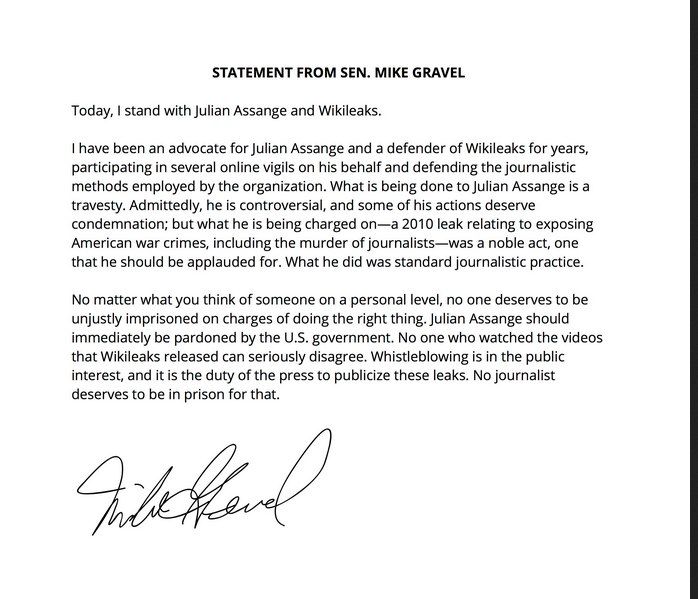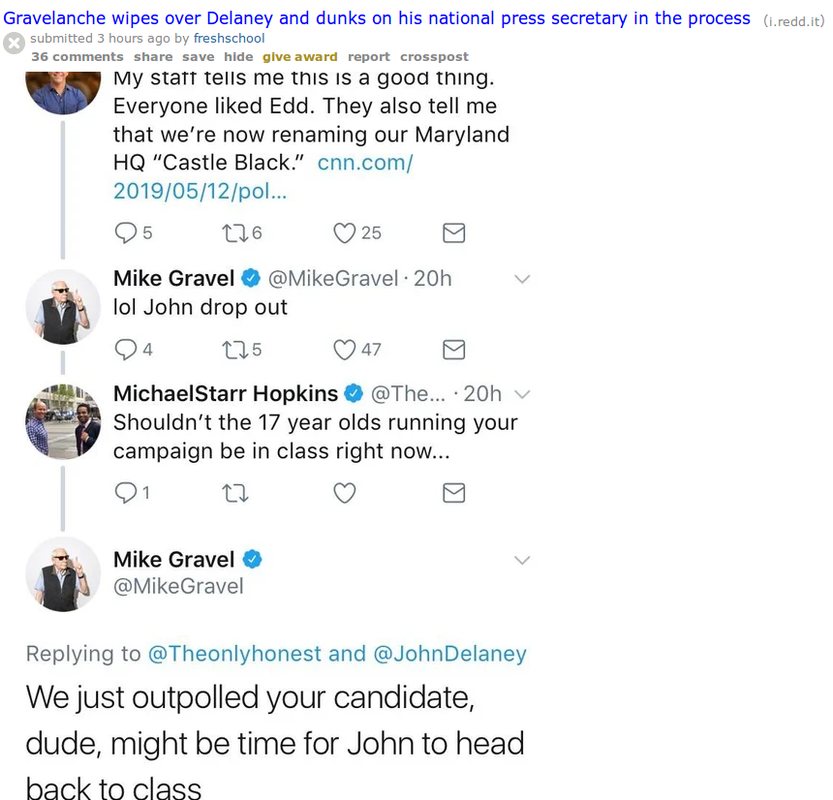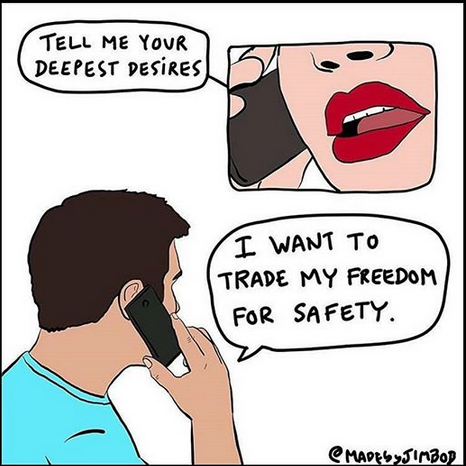I have donated to both Gravel and Yang, entirely due to my selfish, chuckling desire to make the 2020 DNC debates as entertaining as the 2016 GOP debates were.
Would recommend anyone able to do the same. 65,000 is rather a lot of people. Yang was able to hit it, thanks to his craven UBI pitch, but Gravel will face an uphill battle. A single dollar will do the trick.
rigorousintuition.ca
What you don't know can't hurt them.
http://www.rigorousintuition.ca/board2/
Mike Gravel, running again.
http://www.rigorousintuition.ca/board2/viewtopic.php?f=8&t=41677
Page 1 of 2
Re: Mike G, running again.
Went to the website and damned if I can find the donate button.Wombaticus Rex » Wed Apr 10, 2019 9:04 pm wrote:I have donated to both Gravel and Yang, entirely due to my selfish, chuckling desire to make the 2020 DNC debates as entertaining as the 2016 GOP debates were.
Would recommend anyone able to do the same. 65,000 is rather a lot of people. Yang was able to hit it, thanks to his craven UBI pitch, but Gravel will face an uphill battle. A single dollar will do the trick.

Edit: got it, thanks WRex.
Re: Mike G, running again.
Re: Mike G, running again.
https://mondoweiss.net/2019/06/solution ... s-forward/
The two-state solution is dead. Let us take the obvious and humane path forward
Opinion Mike Gravel on June 19, 2019
https://mondoweiss.net/2019/06/solution-obvious-forward/
Any sanity at this point is always drown out, we're NOT going to choose peace. Sad.
The two-state solution is dead. Let us take the obvious and humane path forward
Opinion Mike Gravel on June 19, 2019
https://mondoweiss.net/2019/06/solution-obvious-forward/
One of the most obvious absurdities in the world of foreign policy is seeing what is considered serious. The people who want to continue funding massacres, genocides, and authoritarian regimes abroad frame their ideas in the sober language of realism, and earn plaudits from pundits and think tanks; those who propose the moral and obviously necessary alternatives are dismissed as unserious, among the cruelest insults in the world of foreign policy. Thus I do not expect the policy I will propose for Israel and Palestine to be taken seriously by the foreign policy establishment, which is too busy honoring Henry Kissinger to care much. But I will be frank with what I view as true seriousness on this important issue.
The very basic threshold for seriousness with regards to Israel/Palestine policy is one that no major party backs: the two-state solution is dead, and we have killed it.
The signs of its expiration are all around us. More than half a million Israeli settlers live (illegally) in Palestinian territory, and it would be politically, and logistically, impossible for them to be removed peacefully. The increasingly entrenched Israeli hard right—led by toxic figures like Ayelet Shaked and Naftali Bennett—openly advocates annexing “Area C,” which constitutes most of the West Bank. And the compromises that a two-state solution would require would not only be politically toxic for both Israeli and Palestinian leadership; they would also be disastrous in practice. It is not difficult to envision ethnic cleansing reminiscent of the massacres surrounding the partition of British India in 1947, as vast numbers of people scramble to cross arbitrary borders in short stretches of time.
With these deteriorating conditions constituting difficult obstacles, it stands to reason that if Bill Clinton and Barack Obama could not reach a working agreement, the particular charms of a Pete Buttigieg or Joe Biden won’t be able to, either. It is also apparent that a two-state solution would likely not be worth the bloodshed and chaos it would cause. So why keep up the charade? Most American diplomats will, in their more candid hours, admit that the two-state idea is long dead. Prudence dictates that America acknowledge that on the world stage and begin the search for other solutions.
The most obvious and humane path forward is the creation of a secular, democratic, binational state with equal rights for all. That is the model the U.S. government, with its partners in the region, should work toward and publicly highlight as the ideal outcome. This, like any real solution, would disappoint many, both those who want an official Palestinian national homeland and those who want an official Jewish homeland. But this is necessary. Both visions serve an abstract nationalism rather than the actual needs of Israelis and Palestinians living in the area, and a state along the lines of the idealized United States model, one with no prized ethnicity or religious character, is the solution all those seeking a humanitarian alternative should support. There would be no need for the byzantine arrangements (land swaps, dual city ownership, etc.) upon which most attempts to resolve the conflict have hinged: it would simply be the decision—an admittedly difficult one—to live together, Muslim, Jew, and Christian, in a peaceful, democratic, egalitarian society.
Of course, the sheer power of the Israel lobby in the United States is the main hurdle to such a radical departure from traditional blind support for Israel. Thus the Israel lobby should be restricted; it is time to free American policy from the shackles of AIPAC (American Israel Public Affairs Committee), ZOA (Zionist Organization of America), and other groups. AIPAC especially wields awe-inspiring power over Congress; the hysterical reaction to relatively mild criticism of the group by Rep. Ilhan Omar—criticism that stands out in large part because of the rarity of sitting federal officials criticizing that ship of fools—illustrates just how much influence it wields.
The first step should be mandating that AIPAC register as a foreign lobby under the Foreign Agents Registration Act (FARA). AIPAC manages to skirt American laws about foreign lobbying by claiming that it represents Americans who happen to support Israel. But the shockingly close ties between the governing Likud Party and AIPAC give a lie to this legal fiction; AIPAC will always stand closer to Israeli interests than American ones. (And no, despite Vice President Mike Pence’s claim that Israel’s “cause is our cause, her values are our values and her fight is our fight,” Israeli interests and American ones are not one and the same.) Such an arrangement would prevent AIPAC from influencing American elections, and would require it to report all of its contacts with Congress, along with details of its spending, to the Department of Justice.
Next, the U.S. should end military aid to Israel, citing the Israeli military’s complicity in crimes against the Palestinian people. It should call for a gradual demilitarization of Israel and Palestine, and should be clear with the Israeli government that the days of Israel-right-or-wrong are over. Future outrages by either side will receive an even-handed response without bias. Accordingly, it should demand that Israel bring itself into compliance with international law and end the harassment of dissidents like the liberal Zionist Peter Beinart or those who support the Boycott, Divestment, and Sanctions (BDS) movement.
And the U.S. should refuse to take unconstitutional steps to stifle BDS. Whatever one’s personal thoughts on BDS, an individual or group’s decision not to associate with another group or country is a legitimate exercise of the freedoms of speech and association guaranteed by the Constitution, and using the power of the government to influence those decisions is wrong. Senators Amy Klobuchar and Cory Booker should be ashamed of themselves for supporting federal laws to restrict BDS. (It is perhaps no coincidence that Booker and the president of AIPAC “text message back and forth like teenagers,” by Booker’s own admission.)
What I’m calling for is, in fact, a moderate and sensible proposal; it is the current policy, of unbridled fondness for a government flirting openly with ethnic cleansing, that is radical and dangerous. The current policy is the exact one that George Washington warned against in his Farewell Address: “a passionate attachment of one nation for another,” the creation of “an imaginary common interest in cases where no real common interest exists.”
It’s time for a mature relationship with Israel, free of the cloying sentimentalities and tired banalities (“Israel is the only democracy in the Middle East”) that infest our political discourse surrounding it. America’s wanton indulgence of the whims of Benjamin Netanyahu and his fellow rightists will only redound to the harm of Israelis and Palestinians years down the line. It is too late to return to the fantasies of old, and high time to begin the projects of the new age. There are two possible futures for Israel and Palestine: one close to the vision of Isaiah—“nation shall not lift up sword against nation, neither shall they learn war any more”—and one reminiscent of the prophecy of the Sibyl of Virgil’s Aeneid: “wars, horrendous wars,” the Jordan “foaming with tides of blood.” It’s a simple choice. Let’s choose peace.
Any sanity at this point is always drown out, we're NOT going to choose peace. Sad.
Re: Mike G, running again.
.
https://www.nytimes.com/2019/06/06/maga ... paign.html
Excerpts:
https://www.nytimes.com/2019/06/06/maga ... paign.html
Excerpts:
Are These Teenagers Really Running a Presidential Campaign? Yes. (Maybe.)
The retired senator Mike Gravel gave two young fans his Twitter password and permission to campaign in his name. It might be a stunt — or the future of politics.
...
Followers named themselves #GravelGang or #Gravelanche — a portmanteau that relies on mispronouncing the candidate’s name, which rhymes with lapel, not gavel. (Gravel himself prefers #Gravelistas.) Out of this new constituency, Williams and Oks assembled a volunteer campaign staff. Some of these staff members, who now number 80, work from their day jobs, sending out campaign missives on the clock with a free version of the email service MailChimp.
Gravel’s platform, the most detailed of any Democratic candidate’s, includes a vast slate of issues that poll well with young voters: immigration reform, student-debt forgiveness, a Green New Deal, military-spending cuts, a policy of nonaggression abroad. Oks and Williams call Gravel a few times a week to approve any additions to the slate. Because Gravel isn’t really trying to be president, he can also afford to openly support reparations, the decriminalization of sex work and the end of “Israeli apartheid” — policies considered urgent on the far left but largely ignored or rejected by the Democratic Party. His website, MikeGravel.org, hosts discrete pages for 47 issues. Pete Buttigieg, by contrast, introduced his own website with zero. (Buttigieg has since added his own issues page.) On Instagram, the Mike Gravel page taunted, “Good morning @pete.buttigieg did you finish your policy page yet it’s due today you can copy mine dude just hurry.”
...
Broadly speaking, the Mike Gravel campaign is part of the same Democratic Socialist moment that elected Alexandria Ocasio-Cortez in 2018 and nearly nominated Bernie Sanders in 2016. If Gravel seemed like a sideshow in 2008, then today — post-recession, post-Occupy, post-Trump — his campaign represents the most absurd form of a legitimate movement on the left that feels little obligation to the Democratic Party. Among this young, emergent class of leftists, change is enacted through local organizing efforts, and discourse tends to play out on Twitter, where news, and the organizations that produce it, are subject to daily systemic critique. The rise of leftist discourse on Twitter has helped to hone a new political humor that undergirds the @MikeGravel campaign. The target of this humor is not President Trump but rather what the far left sees as a defeatist and servile center-left that values compromise over belief and denigrates the social reforms beloved by the very same voters it seeks.
These values are ingrained in the center-left’s own humor, exemplified by late-night hosts’ trying to outreason Trump by fact-checking his tweets or calling him names like a lying orange Cheeto. If center-left humor says that Trump can be outwitted — despite what the overwhelming evidence suggests — then far-left humor is much more concerned with mocking the kind of political system that says you have to argue with someone like him at all. Williams describes this strain of humor as “a kind of postmodern ironic detachment, coupled with real earnestness.” Often this particular earnestness is vulgar, using bluntness as an antidote to self-regard. When I asked one #Gravelanche supporter what he thought of the candidate Kamala Harris, a former attorney general of California, he suggested that she “would be a good secret-police chief.” When I asked him what he thought of older voters, he said: “Older people are going to be dead in 10 years, so they just want their tax money and [expletive] to buy kangaroo-skin dildos.”
...
Re: Mike G, running again.
And what a unique and captivating campaign it's been so far. Bravo!
Re: Mike G, running again.
“Good morning @pete.buttigieg did you finish your policy page yet it’s due today you can copy mine dude just hurry.”
hahaha...
Pick and choose your burn... I guess:
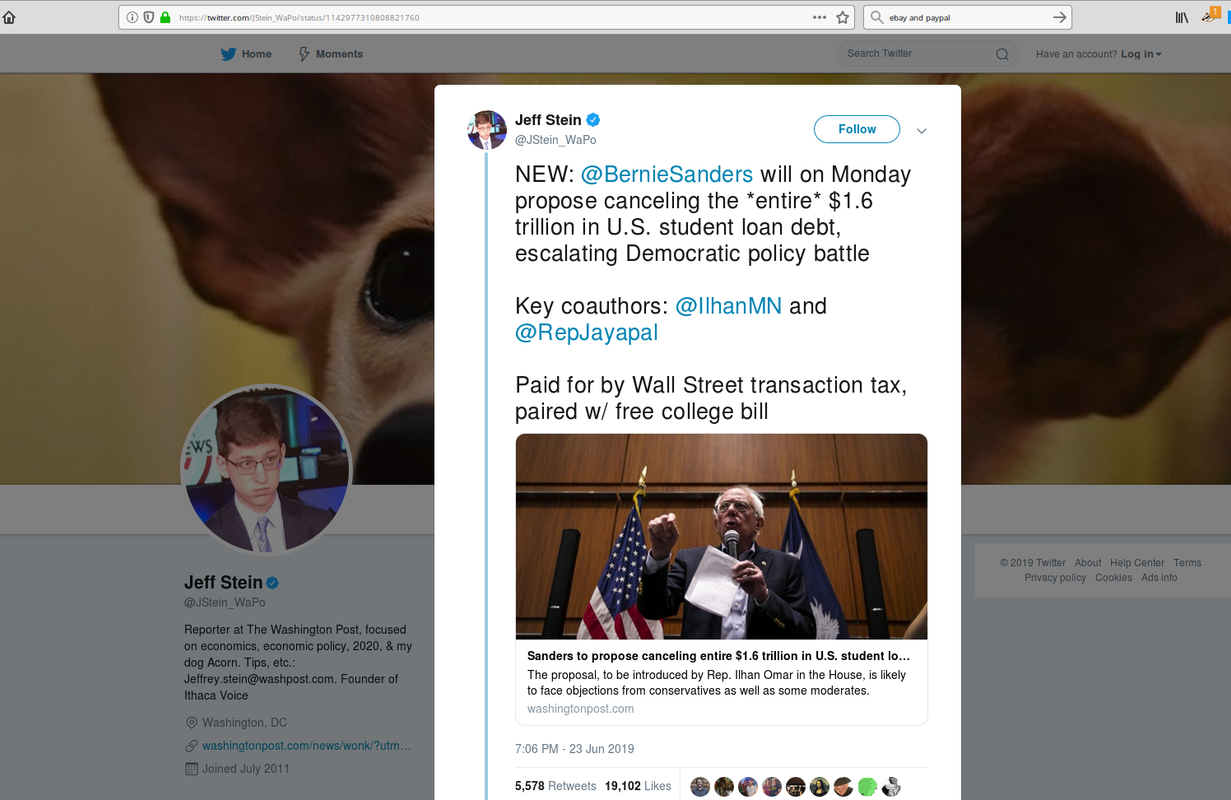 https://youtu.be/t0pk7QwifeY
https://youtu.be/t0pk7QwifeY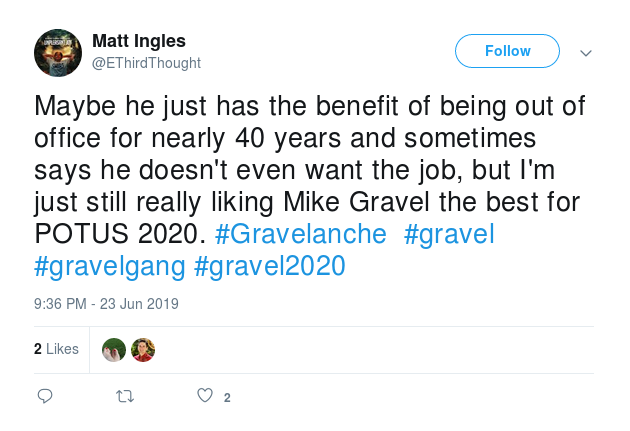
https://twitter.com/hashtag/GravelGang
Don't hold back, mike!
Mike telling it how it is, when it comes to warmongering/ war criminals. Gravelanche be Part of the #GravelGang today and donate to https://www.mikegravel.org/ Doesn't matter how much money, But how much people, 65,000 individual donations needed to Qualify for the july debates. Let's push for lefty ideals, call out the fake progressives leaching of the movement, And end these wars!
In this clip from PRIMO NUTMEG #178, former Senator and 2020 Democratic presidential candidate Mike Gravel explains why he believes that the attacks on the World Trade Center on September 11, 2001 were "an inside job" and why he believes that the 9/11 Commission's investigation was insufficient.
Not happy about being data raped by ActBlue, but I just donated to MG.
Re: Mike G, running again.
Just got this...
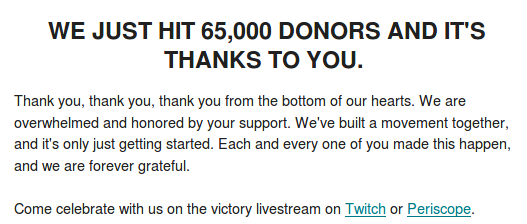
[/[url=https://
https://www.mikegravel.org/
If we have to use our slave money/wadges to fight, at least I spent my cash contribution on someone that has some mokium of human decency. Fuck this broken forever war system.
Adddendum : I separated this bullshit sneak in ad, from whatever shit sly hosting company these fucks above let me use... they didn't. use to do this: banks-nearme.com/hsbc-bank-near-me]where is the nearest hsbc

[/[url=https://
Paid for by the Committee for Peace, Justice, and Mike Gravel, a grassroots campaign committed to getting Senator Mike Gravel to the Democratic Debates.
Contributions to the Committee for Peace, Justice, and Mike Gravel are not tax-deductible.
https://www.mikegravel.org/
If we have to use our slave money/wadges to fight, at least I spent my cash contribution on someone that has some mokium of human decency. Fuck this broken forever war system.
Adddendum : I separated this bullshit sneak in ad, from whatever shit sly hosting company these fucks above let me use... they didn't. use to do this: banks-nearme.com/hsbc-bank-near-me]where is the nearest hsbc
Re: Mike G, running again.
Of course I gave, and gotten others to do so also.
Ditto on Gabbard, same reason. Move the goddamn Overton window on what can be said about the WARS.
And also Sanders.
So call me a sucker.
Call me a useless couch potato revolutionary giving up my money for the electoral scam.
Call me a hopeless dreamer!
Ditto on Gabbard, same reason. Move the goddamn Overton window on what can be said about the WARS.
And also Sanders.
So call me a sucker.
Call me a useless couch potato revolutionary giving up my money for the electoral scam.
Call me a hopeless dreamer!
Re: Mike G, running again.
^^^
Overton window, indeed,
Jack, I'd take a Sanders/ Gabbard ticket. So your not the only one*, or Cray cray...[/quote]
* with apologizes to Lennon. Imagine...lol
Call me a hopeless dreamer!
Overton window, indeed,
Jack, I'd take a Sanders/ Gabbard ticket. So your not the only one*, or Cray cray...[/quote]
* with apologizes to Lennon. Imagine...lol
Rest in peace
.
Mike Gravel, two-term senator from Alaska who declassified the Pentagon Papers by reading the full text into the Congressional record, leader in the legislative defunding of the American war in Vietnam and the end of the draft, presidential candidate in 2008 and 2020, founder of the Gravel Institute, is no more.
2019 was his last show on the road, but the legacy stands out as enormous in comparison to the rest of the country's politicians.
Here's a transcript I fashioned out of the Youtube closed captioning for his appearances in the Democratic presidential primary debates in 2007-2008, when he was even allowed to speak.
https://www.youtube.com/watch?v=uBcMUZAXMW4
Mike Gravel, two-term senator from Alaska who declassified the Pentagon Papers by reading the full text into the Congressional record, leader in the legislative defunding of the American war in Vietnam and the end of the draft, presidential candidate in 2008 and 2020, founder of the Gravel Institute, is no more.
2019 was his last show on the road, but the legacy stands out as enormous in comparison to the rest of the country's politicians.
Here's a transcript I fashioned out of the Youtube closed captioning for his appearances in the Democratic presidential primary debates in 2007-2008, when he was even allowed to speak.
https://www.youtube.com/watch?v=uBcMUZAXMW4
SOME OF THESE PEOPLE FRIGHTEN ME
Gravel confronts Clinton, Obama, and Biden
'Who are we afraid of? Who are you afraid of? Who the hell are we going to nuke?'
'The military industrial complex not only controls our government lock stock and barrel but they control our culture.'
Q. Senator Gravel for those who may not be familiar with your past, two terms US Senate from Alaska, you played a role in the fight to cut off money for the Vietnam War. What would be your advice for the elected officials on this stage who are opposed to the conflict but also feel the need to keep on funding the conflict?
A. Well first off understand that this war was lost the day that George Bush invaded Iraq on a fraudulent basis. Understand that now, with respect to what's going on in Congress, I'm really embarrassed. So... the media's in a frenzy right today with what has been passed. George Bush communicated over a year ago that he would not get out of Iraq until he left office. Do we not believe him? We need to find another way.
That's where I really would like to sit down with Pelosi and with Reid and and I would hope the other senators would focus on, how do you get out? You pass the law, not a resolution. A law, making it a felony to stay there. And I'll give you the text of it. And if you if you're worried about filibuster, here's what you do... Pass it in the House, we got the votes. [In the Senate,] let them filibuster it and let's recall everyone at 12 o'clock every day to have a cloture vote, and let the American people see clearly who's keeping the war going and who's not. And that's just the beginning of the tactic, if they're tough enough to do it.
Q. Senator Gravel at a forum earlier this year you said it doesn't matter whether you are elected president or not, so then why are you here tonight? Shouldn't debates be for candidates who are in the race to win the race?
A. Ryan you're right I made that statement but that's before I had a chance to stand with them a couple or three times. it's like going into the Senate you know the first time you get there you're all excited, my god how did I ever get here. Then about six months later you say how the hell did the rest of them get here? And I got to tell you after standing up with them some of these people frighten me they frighten me.
When you have mainline candidates turn around and say that there's nothing off the table with respect to Iran, that's code for using nuclear devices. I got to tell you if I'm president the United States there will be no pre-emptive wars with nuclear devices. In my mind it's immoral and it's been immoral for the last 50 years as part of American foreign policy.
Q. Let's use a little moderator discretion here. Senator Gravel that's a weighty charge. Who on this stage exactly tonight worries you so much?
A. [Turning to face Clinton, Obama, and Biden.] Well I would say the top tier ones. They've made statements -- Joe [Biden] I'll include you too -- you have a certain arrogance. You want to tell the Iraqis how to run their country. I got to tell you we
should just get out, just get out. It's their country, they're asking us to leave, and we insist on staying there.
And why not get out? What harm is that going to do? You hear the statement well my god the soldiers will have died in vain. The entire death of Vietnam died in vain, and they're dying in vain right this very second. You know what's worse than a soldier dying in vain? It is more soldiers dying in vain, that's what's worse.
Q. What are other than Iraq three most important enemies to the United States?
A. We have no important enemies. What we need to do is begin to deal with the rest of the world as equals, and we don't do that. We spend more as a nation on defense than all the rest of the world put together. Who are we afraid of? Who are you afraid of? But Brian I not and Iraq has never been a threat to us. We invaded them. I mean it is unbelievable the military-industrial complex not only controls our government lock stock and barrel but they control our culture.
Q. [You had] two terms in the Senate representing Alaska. [...]
A. ...I'm also the one that denied the boots on the ground for George Bush today, when I filibustered the end of the draft. [...]
A. I want to answer the question on the war... We are mischaracterizing terrorism. Terrorism has been with civilization from the beginning and it will be there till the end we're going to be as successful fighting terrorism as we are fighting drugs. With a war it doesn't work. What you have to do is to begin to change the whole foreign policy. The Republicans who are charging Democrats about about not going for the defense of this country my god this invasion brought about more terrorists. Osama bin Laden must have been rolling in his blankets, said how happy he was over our invading Iraq
Q. [Question about nuclear weapons proliferation appears to have referred to Iran...]
A. With respect we've sanctioned them for 26 years, we scared the bejesus out of them when the president says there they're evil well you know something these things don't work they don't work we need to recognize them. And you know something? Who is the greatest violator of the non-proliferation treaty? The United States of America. We signed a pledge that we would begin to disarm and we're not doing it. We're expanding our nukes. Who the hell are we going to nuke?
Re: Mike Gravel, running again.
Democracy Now! featured Mike Gravel's passing and his reading into the Congressional Record, as told by him in 2008. The link is to the transcript, but in this case the story is better to be listened to as he tells it. Video at link.
Rest in Peace, Mike Gravel.
https://www.democracynow.org/2021/6/28/mike_gravel_pentagon_papers#transcript
Rest in Peace, Mike Gravel.
https://www.democracynow.org/2021/6/28/mike_gravel_pentagon_papers#transcript

